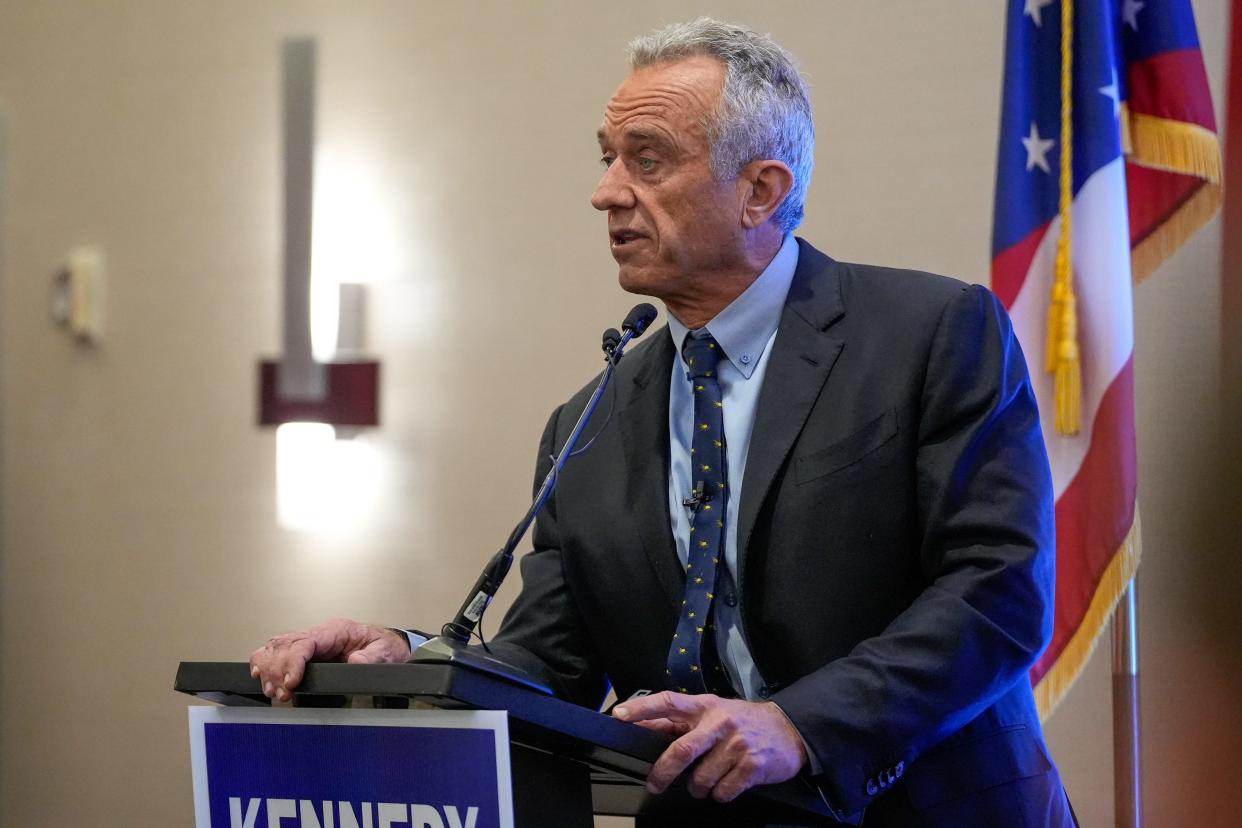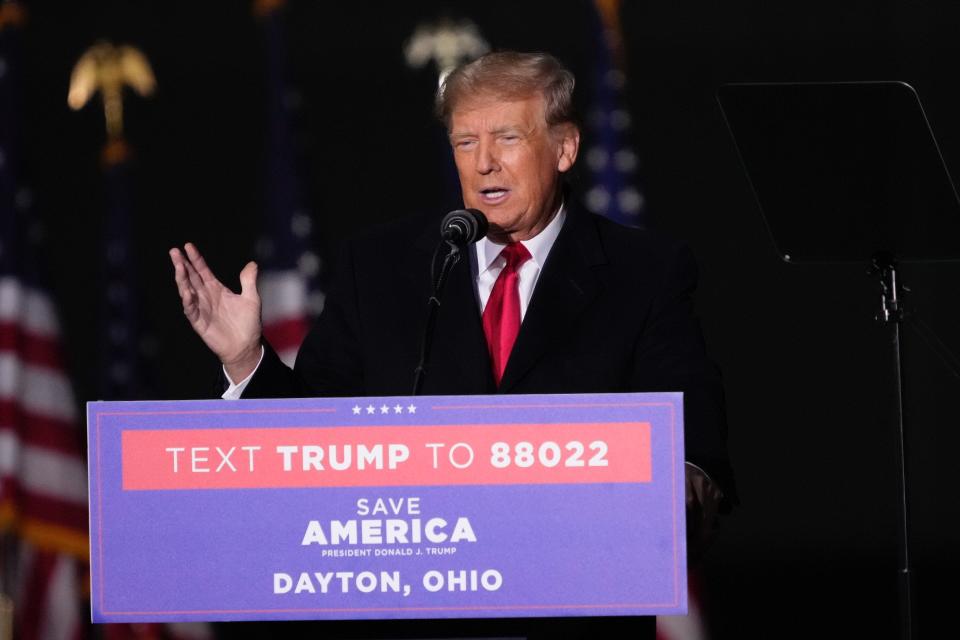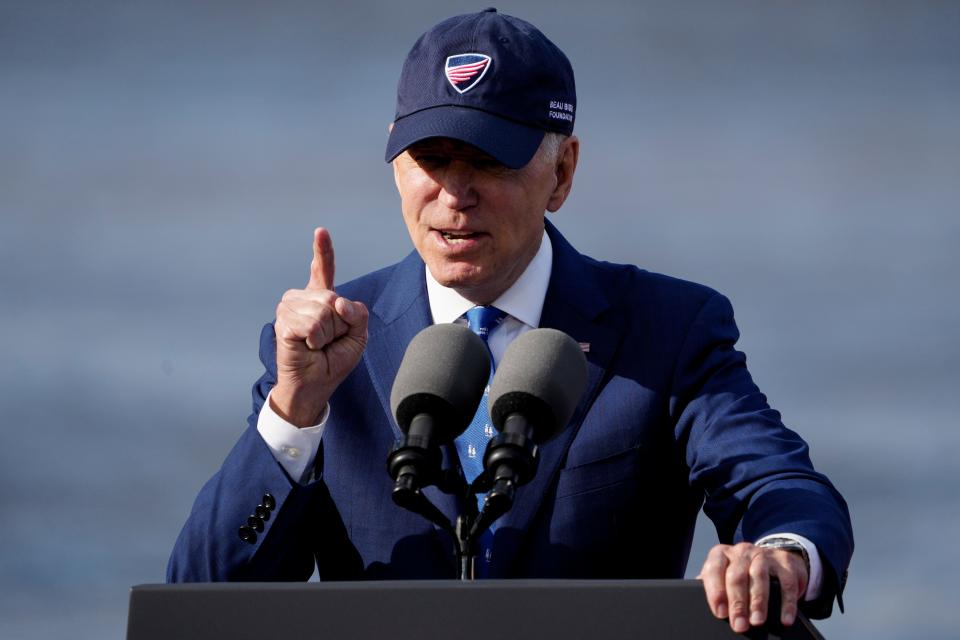Could a third-party presidential candidate have an impact in Ohio in 2024?

- Oops!Something went wrong.Please try again later.
Joe Cunningham is convinced Ohioans want another option for president in 2024.
The former South Carolina congressman now serves as national director for No Labels, which is trying to get on the November 2024 ballot in Ohio and other states. Its mission: Provide voters with an alternative to the presumptive major-party nominees, President Joe Biden and former President Donald Trump.
“Americans want another choice, and we’re preparing to give it to them," Cunningham said in an interview. "We’re responding to the majority of Americans who feel disaffected or unheard."
No Labels doesn't have a candidate yet. But the organization and campaigns of Robert Kennedy Jr. and Cornel West have spurred debate about whether 2024 is the year for third-party politicians to shine. A recent Harvard/Harris poll found nearly 60% of voters would consider an independent candidate if there's a Biden-Trump rematch.
Despite that, third-party challengers face an uphill battle in a system driven by Republicans and Democrats. They can affect the final outcome by tearing votes away from major candidates − but even that requires a certain level of support that's hard to come by.
And while third-party candidates are courting Ohio, it's no longer the presidential bellwether it used to be. Voters overwhelmingly supported Trump in 2016 and 2020, and political scientists say it'd be hard for someone like Kennedy or West to put a meaningful dent in those margins.
"I don't always love this, but we live in a two-party system," U.S. Sen. J.D. Vance, R-Ohio, said. "If you want to really change the system, I think the way to do it is to try to do it within one of the political parties. I think that was the path that Trump took. I don't think that any of these guys are going to get more than 10%, and it's not going to be a real factor nationally or in the state of Ohio."
Trump remains popular in Ohio
There's still a long way to go before Nov. 5, 2024, but early signs look promising for Trump in Ohio.
A July USA TODAY Network/Suffolk University poll showed Trump leading Biden 44% to 38% in a potential matchup including West, who got just 2% of the vote. Over 8% of voters said they would back an unnamed independent candidate, and 6.4% were undecided.

Nearly 48% of Ohio voters had a very or somewhat favorable view of Trump in an October Baldwin Wallace University survey. Biden trailed him with a favorability of 37%.
"Any effect we’re talking about for third parties is up against a pretty substantial Trump advantage," said Christopher Devine, a political scientist at the University of Dayton. "It’s hard to see them taking enough of the vote to make a difference between Trump and Biden."
Despite the odds, No Labels filed a petition seeking third party status in Ohio. A spokeswoman for Secretary of State Frank LaRose said boards of elections are reviewing the signatures, and a final decision about the group's placement will be made by July. The November 2024 ballot will be finalized in late August.
Kennedy, meanwhile, visited the Columbus and Cincinnati areas in October.
"(Trump) is very far right, not like Nazi right, obviously, I don't think that," Cedarville resident Tyler Scott told the Cincinnati Enquirer during the West Chester event. "But he's more farther right than most, and then Biden and others are a little far left. And I feel like we need someone a little more in the middle."
Cunningham believes Ohio voters are independent-minded and crave substance from politicians, something he thinks No Labels can provide. But historically, third-party candidates haven't stood much of a chance here. The most successful example was Ross Perot, who got 21% of the Ohio vote in 1992 as part of a better-than-average showing nationwide.
In 2016 − another year of disgruntled Republicans and Democrats − Libertarian Gary Johnson got just 3% of the vote in Ohio, while Green Party candidate Jill Stein didn't even crack 1%.

A 'wasted vote'?
Since third-party contenders don't win, they instead can serve as a spoiler for one or both major-party candidates. They have the potential to flip outcomes because the electorate is so closely divided, said Justin Buchler, a political scientist at Case Western Reserve University.
That has some Republicans and Democrats sweating ahead of 2024. Kennedy got over 20% of the vote in six battleground states in an October New York Times/Sienna College poll, which cost Trump leads in a few states. Some Democrats worry West could erode support for Biden.
“A third-party candidate has no chance to win the presidency in 2024. Period," said Liz Walters, chairwoman of the Ohio Democratic Party. "There’s too much at stake next year to allow a third-party candidate to play spoiler and risk four more years of extremism, corruption and anti-democratic values in a Republican-controlled White House."
Still, experts say frustrated voters − in Ohio and nationwide − will eventually come home to either the Republican or Democratic Party. Devine said many people who claim to be independent reveal strong partisan preferences when you dig a little further.
“In the end," Devine said, "they usually come back to the idea that it’s a wasted vote and you can’t win anyway."
Haley BeMiller is a reporter for the USA TODAY Network Ohio Bureau, which serves the Columbus Dispatch, Cincinnati Enquirer, Akron Beacon Journal and 18 other affiliated news organizations across Ohio.
This article originally appeared on The Columbus Dispatch: 2024 presidential race: Why Ohio is tough for third-party candidates

